5 Ways Physician Salaries Vary
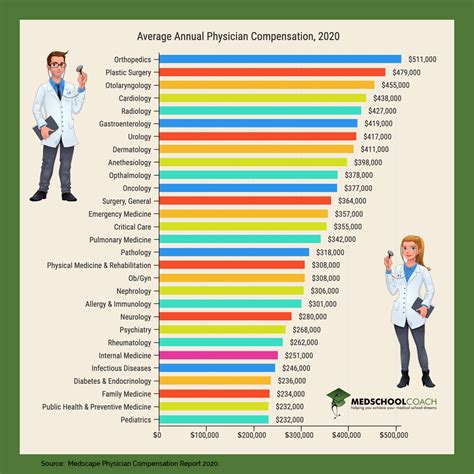
Introduction to Physician Salaries

Physician salaries can vary significantly based on a multitude of factors, including location, specialty, years of experience, type of practice, and employment setting. Understanding these variations is crucial for medical students, residents, and practicing physicians as they navigate their careers and make informed decisions about their professional paths. This article delves into the key factors influencing physician salaries, providing insights into the complexities of the medical profession’s compensation landscape.
Factor 1: Location
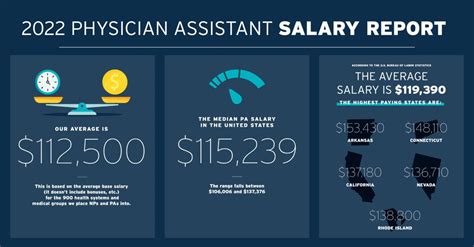
The location of a physician’s practice is a critical determinant of their salary. Salaries can vary widely from one region to another, with urban areas often offering higher compensation packages than rural settings. This disparity is largely due to differences in cost of living, demand for medical services, and availability of medical professionals in various regions. For instance, physicians practicing in metropolitan areas like New York or Los Angeles tend to earn more than their counterparts in smaller cities or rural towns. The following are some key points to consider regarding location and physician salaries: - Urban vs. Rural: Urban areas generally offer higher salaries due to a higher cost of living and greater demand for specialized services. - Regional Variations: Salaries can vary significantly from one state to another, with some states offering higher average salaries due to local economic conditions and the cost of living. - International Comparison: Physician salaries also vary internationally, with some countries offering significantly higher or lower salaries compared to the United States.
Factor 2: Specialty

The specialty chosen by a physician is another significant factor affecting their salary. Different specialties require varying levels of education, training, and expertise, which are reflected in their compensation. Generally, specialties that are more competitive, require longer training periods, or are in high demand tend to offer higher salaries. For example: - Surgical Specialties: Surgeons, particularly those in specialties like orthopedic surgery or cardiothoracic surgery, are often among the highest-paid physicians due to the complexity and high stakes of their work. - Primary Care: Primary care physicians, including family medicine and internal medicine specialists, typically earn less than their counterparts in surgical or other specialty fields. - Emerging Specialties: With advancements in medical technology and changes in healthcare needs, newer specialties like medical informatics or telemedicine may offer unique salary opportunities as they grow in demand.
Factor 3: Years of Experience

A physician’s years of experience play a substantial role in determining their salary. As physicians gain more experience, they not only develop greater expertise in their field but also often take on additional responsibilities, such as leadership roles, teaching, or research, which can increase their earning potential. Here are some considerations: - Entry-Level Positions: New physicians, especially those just out of residency, start at a base salary that reflects their initial level of experience. - Mid-Career Salaries: As physicians gain experience, typically between 5 to 15 years into their practice, they can expect salary increases reflecting their growing expertise and contributions to their field. - Senior Positions: Seasoned physicians, especially those in leadership or highly specialized roles, can command the highest salaries due to their extensive experience and the value they bring to their institutions or practices.
Factor 4: Type of Practice

The type of practice a physician is engaged in also impacts their salary. This can include private practice, academic medicine, research, or employment in a hospital or healthcare system. Each setting has its unique compensation structures and benefits. For instance: - Private Practice: Physicians in private practice may have the potential to earn more, as their income can directly reflect the success and size of their practice. However, they also bear more financial and administrative risks. - Academic Medicine: Those in academic medicine may earn less than their private practice counterparts but are often compensated with the benefits of conducting research, teaching, and contributing to the advancement of medical science. - Employment by Healthcare Systems: Many physicians are now employed directly by hospitals or large healthcare systems. These positions often offer a stable salary and benefits but may limit earning potential compared to private practice.
Factor 5: Employment Setting
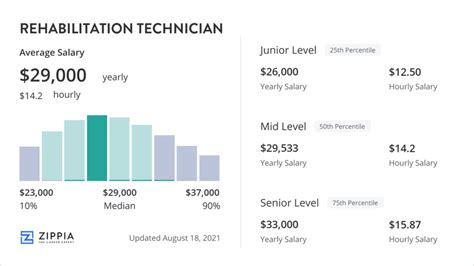
The employment setting, whether it be a hospital, clinic, private practice, or academic institution, influences a physician’s salary. Each setting has its own compensation model, reflecting factors such as the organization’s size, funding, patient volume, and the specific roles and responsibilities of the physicians. Key considerations include: - Hospital Employment: Hospitals often offer competitive salaries and comprehensive benefits to their physician employees, especially for those in high-demand specialties. - Clinic Settings: Clinics, whether private or community-based, may offer salaries that are competitive but often less than those in hospital settings, depending on the clinic’s specialty and patient load. - Academic and Research Institutions: These settings may offer lower base salaries but provide opportunities for additional income through research grants, teaching, and speaking engagements.
💡 Note: The factors influencing physician salaries are interconnected and can vary widely depending on individual circumstances. Aspiring and practicing physicians should research these factors thoroughly to make informed decisions about their careers.
To summarize the key points, the following table highlights the primary factors affecting physician salaries and their potential impact:
| Factor | Description | Potential Impact on Salary |
|---|---|---|
| Location | Urban vs. rural, regional variations, international comparison | Significant, with urban areas and certain regions offering higher salaries |
| Specialty | Different specialties have different requirements and demands | Substantial, with certain specialties like surgery offering higher salaries |
| Years of Experience | Entry-level, mid-career, senior positions | Gradual increase, with more experienced physicians earning higher salaries |
| Type of Practice | Private practice, academic medicine, research, employment in healthcare systems | Varying, with private practice potentially offering higher earnings but also more risk |
| Employment Setting | Hospitals, clinics, private practices, academic institutions | Different, with each setting having its unique compensation structures and benefits |
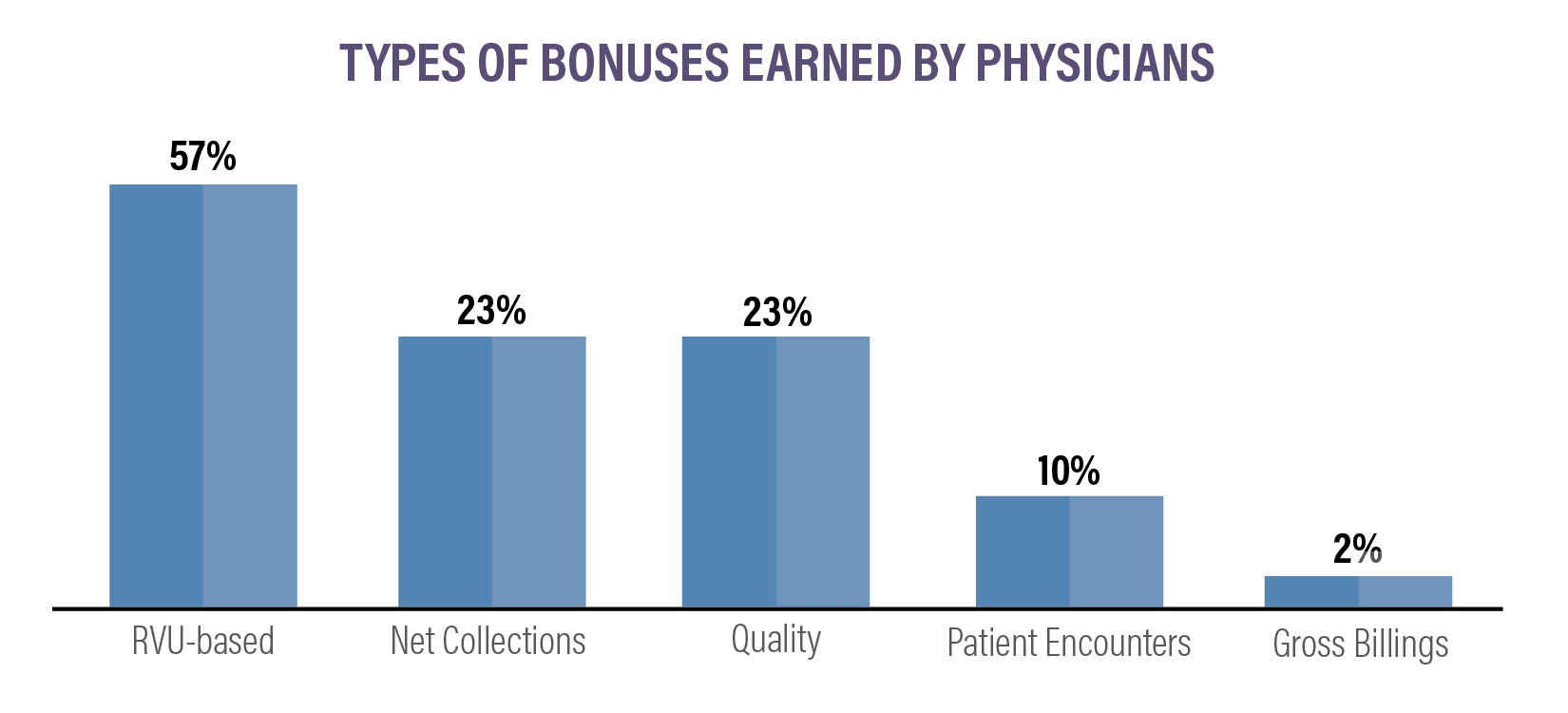
In conclusion, physician salaries are influenced by a complex array of factors, including location, specialty, years of experience, type of practice, and employment setting. Understanding these factors is essential for physicians to navigate their careers effectively and for policymakers and healthcare administrators to address issues of physician compensation and workforce distribution. The variability in salaries underscores the need for ongoing education, flexibility, and strategic planning for physicians and the healthcare industry as a whole.
How do location and specialty interact to affect physician salaries?

+
The interaction between location and specialty can significantly impact physician salaries. For instance, a specialist in a high-demand field practicing in an urban area may earn a higher salary than a primary care physician in a rural setting. However, the specific impact depends on local factors such as cost of living, patient demand, and the availability of medical professionals in the area.
What role does experience play in determining a physician’s salary?

+
Experience is a critical factor in determining a physician’s salary. As physicians gain more years of experience, they typically see increases in their salary. This is because experience often correlates with greater expertise, the ability to take on more complex cases, and potential leadership or teaching roles, all of which can command higher compensation.
How does the type of practice affect a physician’s potential earnings?
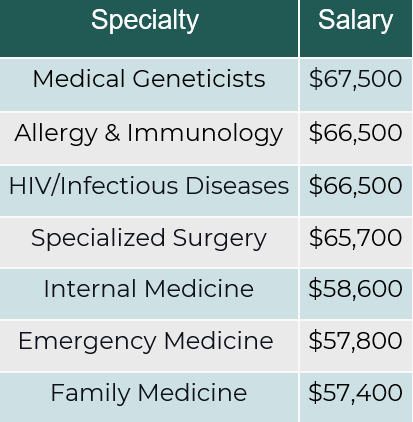
+
The type of practice, whether it be private practice, academic medicine, or employment in a healthcare system, can significantly affect a physician’s potential earnings. Private practice, for example, may offer higher earning potential but also involves more financial and administrative risks. In contrast, academic or employed positions may offer more stability but potentially lower salaries.